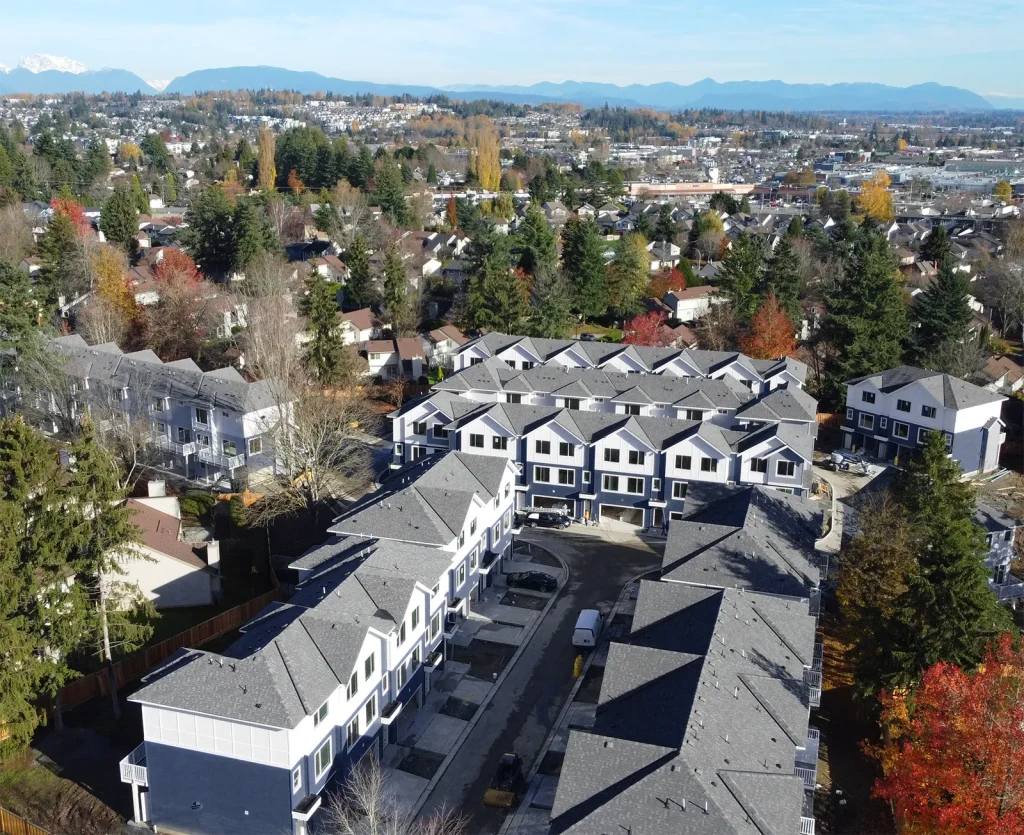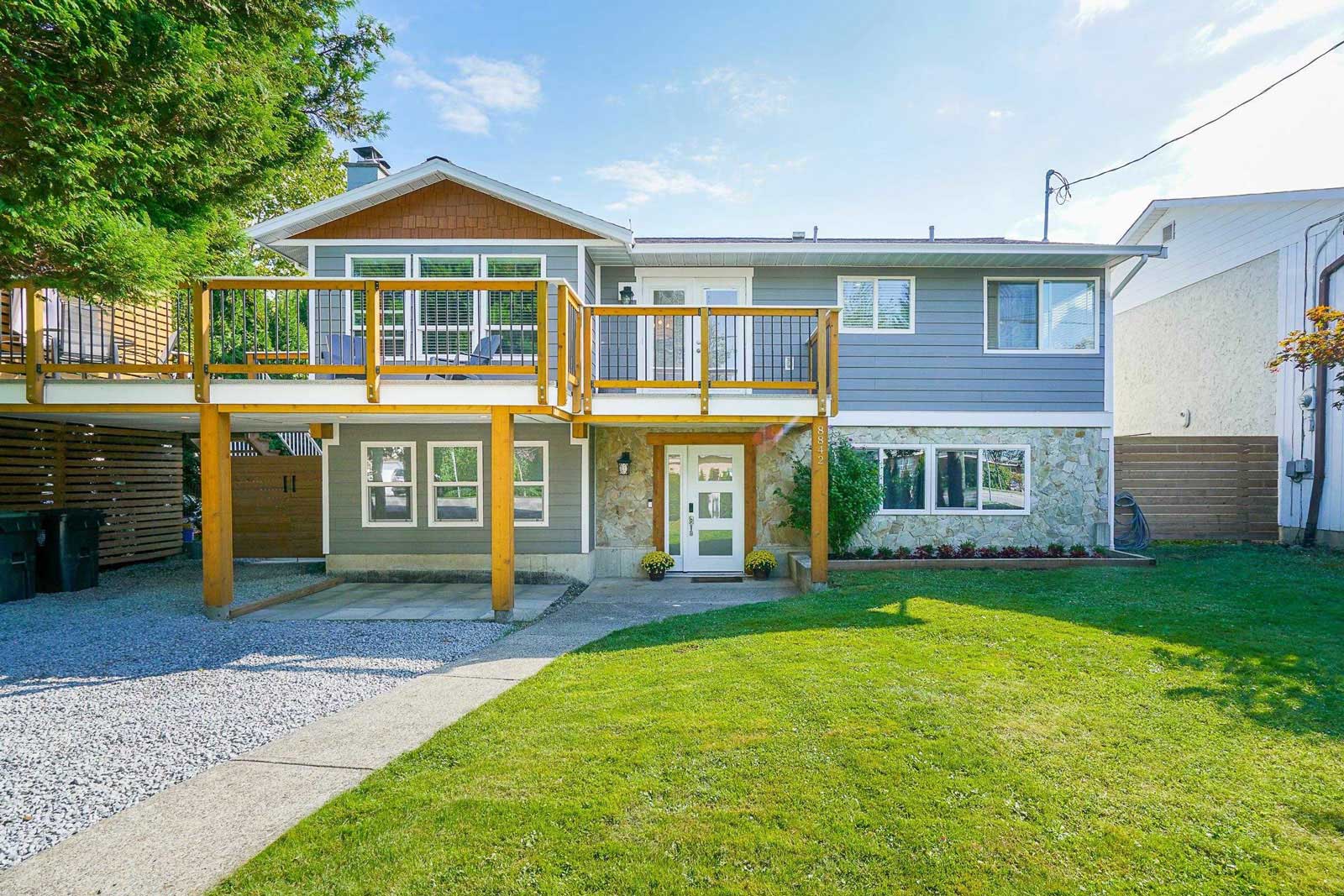As of April 1st, 2024 the British Columbia government has new rules and regulations regarding Property Transfer Tax to assist with the BC housing market. Each of these new regulations will have a great impact on both the Fraser Valley real estate and the BC real estate market. This is just a quick overview, however, if you have any additional questions our team is available to answer any questions you may have.
Understanding the First Time Home Buyers’ Program
The first-time home buyers’ exemption in British Columbia offers qualifying individuals relief from paying the property transfer tax on their first property purchase. Provincial taxes on real estate transfers are known as property transfer taxes, and they are determined as a percentage of the property’s fair market value. First-time homebuyers can avoid paying this tax entirely or receive a partial exemption, depending on the value of the house, which means they will save significantly.

How do I qualify for this exemption?
- Being a Canadian Citizen or Permanent resident
- Have never owned a registered interest in a property that was your principal residence anywhere in the world at any time
- Have never received a first time home buyers’ exemption or refund
And the property must
- Only be used as your principal residence
- Have a fair market value of $835,000 or less (effective April 1, 2024)
- Be 0.5 hectares (1.24 acres) or smaller,
- Contain only residential improvements
If all of the above requirements are met, then the purchaser will be exempt from property transfer tax on the first $500,000 of the purchase price of the property.
For a Partial Exemption
You may qualify for a partial exemption from the tax if the property:
- Has a fair market value of more than $835,000 but less than $860,000 (effective April 1, 2024)
- Is larger than 0.5 hectares, and/or
- Has another building on the property other than the principal residence
This is a valuable opportunity for eligible individuals to embark on their journey towards homeownership with greater ease and affordability.
Find out the amount of your exemption if you qualify.
Newly Built Home Exemption
The newly built home exemption is designed to alleviate the financial burden for individuals purchasing newly constructed homes in British Columbia. With this new rule, eligible homebuyers can avoid paying property transfer tax altogether or receive a partial exemption, depending on the property’s value.
How do I qualify for this exemption
Newly Built House: The property up for purchase needs to be brand-new; that is, it can’t have been previously sold or occupied as a place of residence. This includes newly constructed houses, condominiums, townhomes, and other types of residential properties.
Primary Residence: The buyer’s principal residence must be the newly built home. This indicates that the buyer plans to occupy the property as their primary residence for a minimum of one year after making the purchase.
Fair Market Value: In order to be eligible for the complete exemption, the newly built home’s fair market value must be less than a specific amount. For homes that are almost above the threshold in value, partial exemptions might be offered. Full exemption: Effective April 1, 2024, the fair market value threshold for a full exemption for newly built homes is increased from $750,000 to $1,100,000.
A partial exemption is also available for properties with fair market values just above the threshold. The phase out range is $50,000 above the threshold, with the complete elimination of the exemption at $1,150,000 for qualifying purchasers.
Ownership requirements: The buyer must be a Canadian citizen or permanent resident and must be registered on the title as the property owner.

Purpose-Built Rental Exemptions
The Purpose-Built Rental Exemption is a program designed to encourage the construction of purpose-built rental housing in British Columbia. Under this initiative, qualifying rental housing projects are granted exemptions from certain taxes and levies, making it financially viable for developers to build and operate rental properties. The objective is to meet British Columbians’ housing requirements while both improving affordability and the stock of rental units available. Purpose-built rental buildings are those that are non-stratified and held as rentals, on a monthly basis or longer, for at least 10 years. The residential portion of the building must be entirely used for rental purposes and have at least 4 apartments.
Key features of the exemption
Tax Exemptions: Certain taxes and levies, such as development cost imposed by local governments and property transfer tax on the purchase of land, may not apply to qualifying purpose-built rental developments. If you’re purchasing a new qualifying purpose-built rental building on or after January 1, 2024, you may qualify for the purpose-built rental exemption from the further 2% property transfer tax on the amount of the residential property value that exceeds $3,000,000. This exemption was announced in Budget 2023.
Duration of Exemption: Depending on the precise terms and conditions that the provincial government has established, the length of the exemption period may change. In certain instances, the exemption could be given for a predetermined period of years after the rental housing project is finished.
Requirements for Eligibility: The provincial government has set requirements that developers must fulfill in order to be eligible for the Purpose-Built Rental Exemption. This could involve specifications for the scope and size of the rental housing development, affordability goals, and compliance with land use and zoning laws.
Affordable Housing Component: A fraction of the purpose-built rental units may need to be set aside by developers for affordable housing, with a focus on low- to moderate-income residents. In addition to addressing issues with affordability, this guarantees that rental housing will continue to be available to a wide variety of residents.
We’re Here to Help
The above information was obtained from the official website of the Government of British Columbia. If you have any further questions, please contact our team for clarification and further information.

